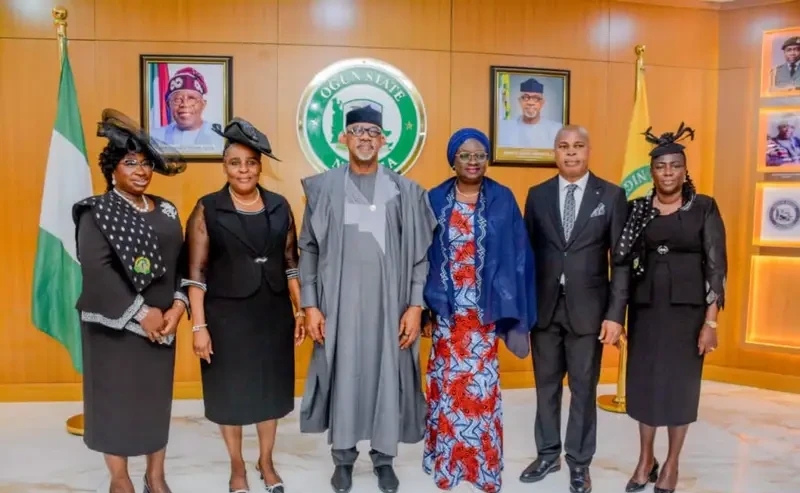Three new judges have been sworn into Nigeria’s Ogun State judiciary amid calls for unwavering commitment to justice and democratic values. Governor Dapo Abiodun officiated the ceremony in Abeokuta on Monday, urging the appointees to embody fairness, integrity, and moral courage in their roles. The move signals the state’s efforts to strengthen its legal system and uphold the rule of law.
The newly appointed judges include Julius Ojikutu, a former Chief Registrar of the Ogun High Court; Adejumoke Adewole, an ex-Permanent Secretary in the state’s Ministry of Women Affairs and Social Development; and Oluyemisi Adebo, who previously served as Secretary of the Ogun Judicial Service Commission. Their diverse backgrounds blend administrative expertise with judicial experience, reflecting efforts to reinforce institutional capacity.
In a statement issued by his special adviser on information and strategy, Kayode Akinmade, Governor Abiodun framed the judiciary as a “shield against oppression” and a cornerstone of democracy. “Our nation’s democracy thrives because judges of conscience defend democratic institutions without fear or favor,” he said, stressing that rulings must align with Nigeria’s constitution, ethical principles, and “the fear of God.” The governor emphasized that judicial independence is critical to balancing executive and legislative powers while safeguarding public trust.
Abiodun, who described himself as a “grateful beneficiary” of impartial courts, pledged continued support for judicial reforms. He highlighted plans to expedite court processes and improve resource allocation to ensure “swift and fair dispensation of justice.” The remarks come amid broader debates in Nigeria about judicial independence and delays in high-profile cases.
Notably, the governor challenged the judges to prioritize justice over personal or political interests. “This is both a legal duty and a moral imperative,” he stated, emphasizing equal treatment for citizens across religious, ethnic, and socioeconomic divides. His call for courage in the face of pressure underscores concerns about external influences on Nigeria’s judiciary, which has faced scrutiny over perceived politicization in recent years.
Analysts view the appointments as part of ongoing efforts to address case backlogs and enhance public confidence in Ogun State’s judicial system. With Nigeria’s democracy frequently tested by electoral disputes and governance challenges, the role of courts in resolving conflicts impartially remains pivotal. The governor’s focus on ethical conduct and separation of powers aligns with constitutional mandates, though critics note that sustained funding and institutional safeguards will determine the long-term impact of such reforms.
The swearing-in ceremony concluded with reaffirmed commitments to judicial autonomy, signaling the administration’s intent to collaborate with courts while respecting their independence—a balancing act central to the stability of democratic frameworks worldwide.
